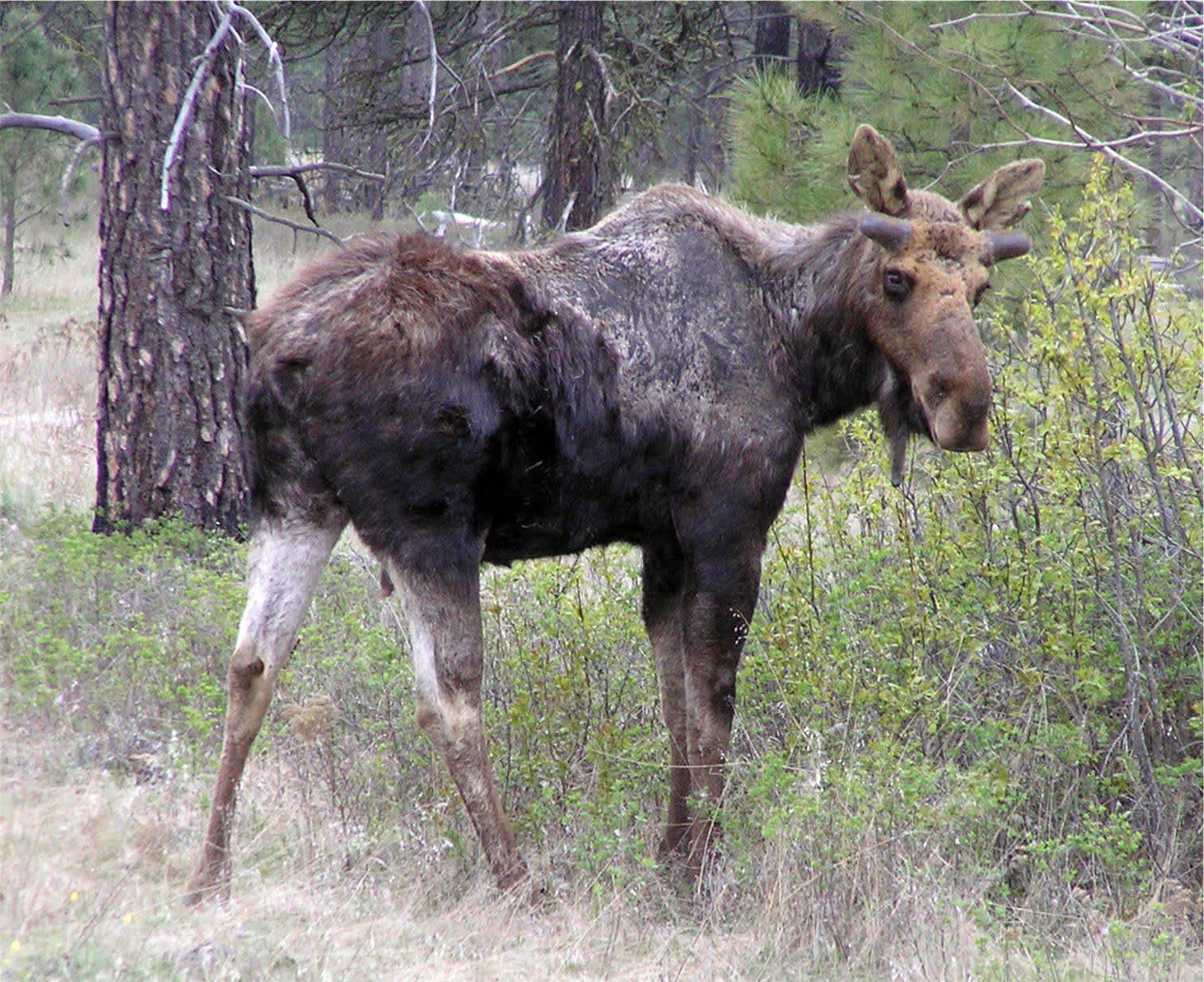Warm Winter Results in Tick Infestation, “Ghost Moose” in Idaho
OutdoorHub Reporters 04.02.15

Are there “ghost moose” in your neighborhood? The term is used by biologists to refer to moose infested with ticks, which can cause any number of harmful side effects. According to the Idaho Department of Fish and Game (DFG), the agency’s Panhandle office was swamped with phone calls last month as concerned residents called in about sickly moose that appeared to be partially white or “ghost-like” in appearance.
The ghostly coloration is actually caused by hair loss resulting from tick infestations. The tiny pests first attach themselves to moose in mid-September, and if they survive through winter, the ticks can become a major cause of mortality for the large herbivores.
“Infested moose can have tens of thousands of ticks,” the DFG said in a press release. “One dead moose was documented to have over 100,000 ticks. Pity the biologist who had to do that necropsy and count them!”
Heavy infestations can result in hypothermia from hair loss, behavioral changes, and even loss of blood from thousands of feeding ticks. Sometimes the itching can become so intense that moose are distracted from foraging and will starve to death. DFG experts say that while the ticks also affect deer and elk, moose face the biggest danger from ticks due to their shaggy coats and inability to scratch the ticks off.
“Mortality is highest in calf moose,” stated the agency. “Their smaller body mass loses heat more readily and is more vulnerable to blood loss. A National Geographic video program on moose ticks reports that calves can potentially lose half of their blood to the attached ticks.”
A mild winter in 2013-2014 meant that tick populations have boomed, and to make matters worse, 2014-2015’s winter was even warmer. Wildlife officials are now bracing for a higher number of moose to die from tick infestation. Fortunately for humans, the ticks do not seem to prefer people as hosts. However, wildlife experts still advise residents to be careful around infested animals.
“This particular tick will not attach to a human. However, a moose infested with them can become so agitated that the moose becomes aggressive toward people and poses a potential danger,” the agency stated. “If you see a ‘ghost moose’, stay away. The stressed and irritated moose may become aggressive and could cause severe injury or death to a person.”

